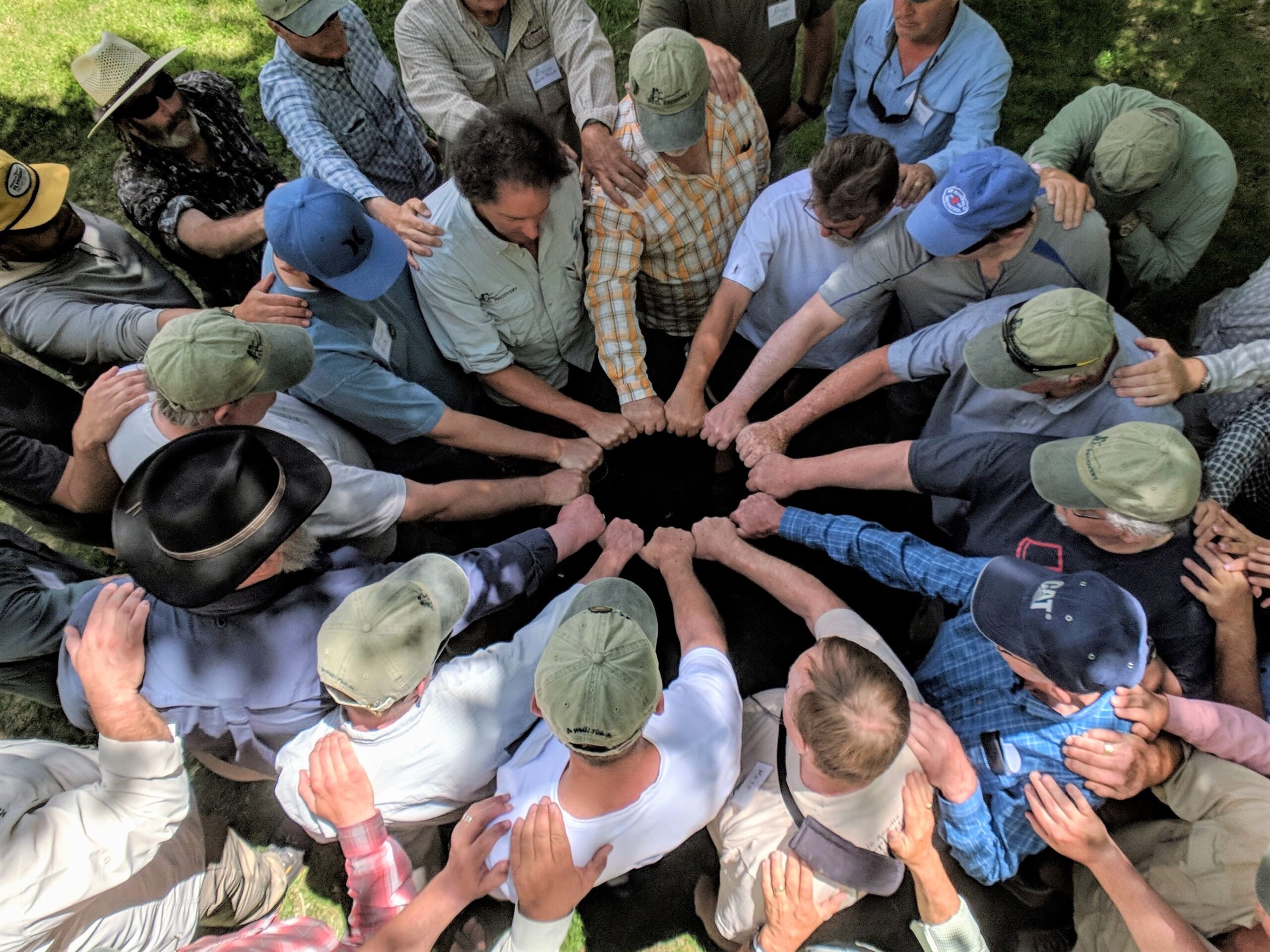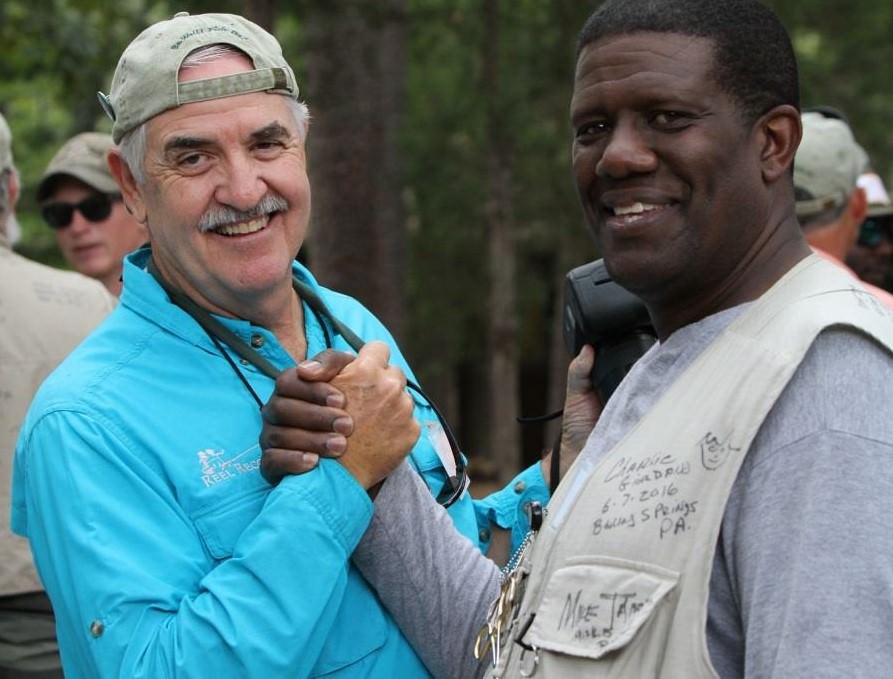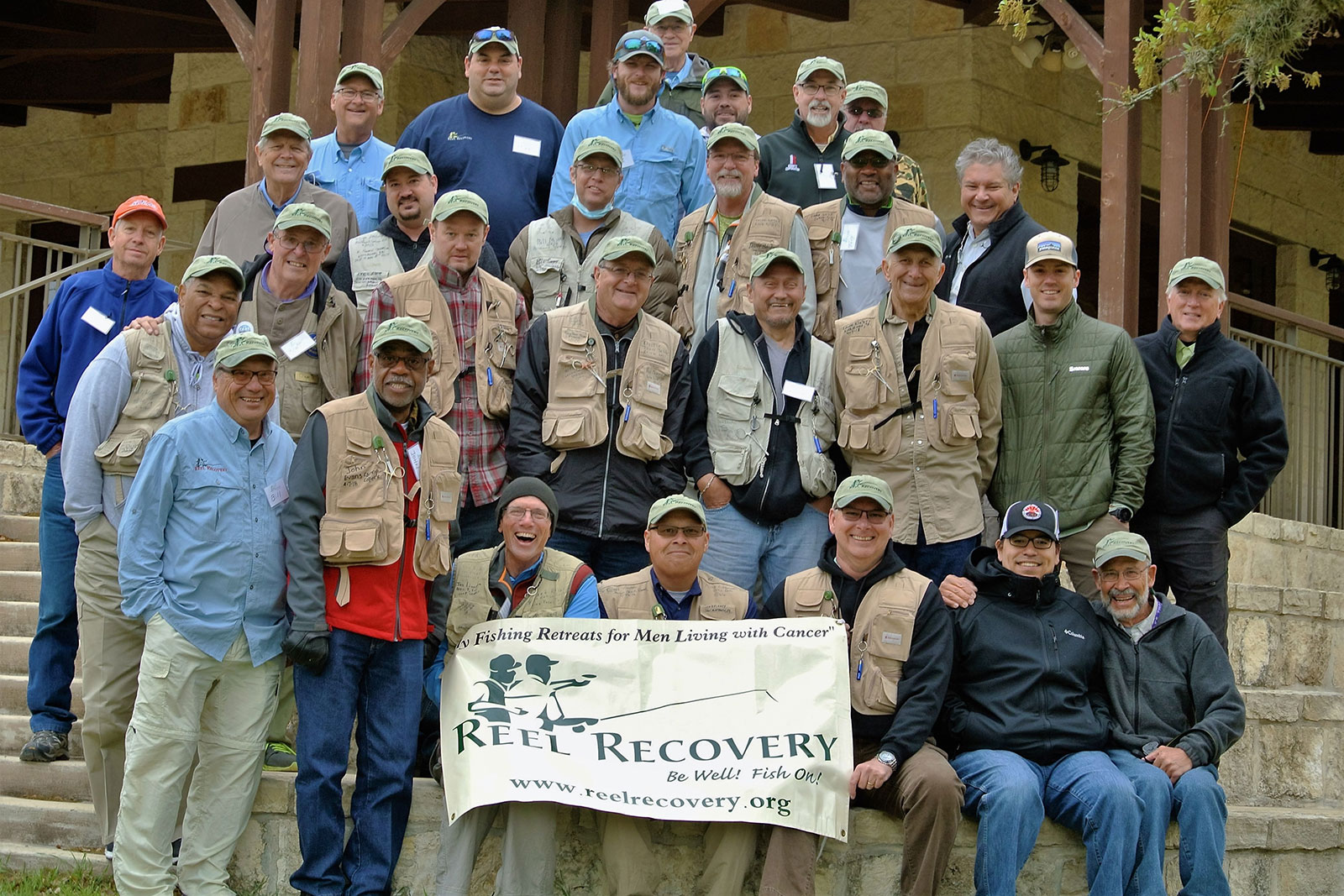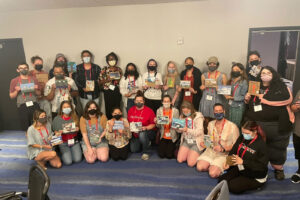“My primary goal in running Reel Recovery has been to create a place where people can be their best selves,” says Stan Golub, executive director of Reel Recovery, a national nonprofit that provides free fly fishing retreats for men with cancer. This year, Reel Recovery will host a total of 32 retreats in 21 states. Golub has been there since day one.
“It’s not about cancer, it’s not about fly fishing, it’s about the generosity of spirit amongst all of our volunteers and staff that welcome these men, treat them like kings, and give them this life-changing experience that does transform them,” Golub says.
Founded in 2003, Reel Recovery has helped more than 3,400 men connect with others who can relate to their experience dealing with cancer—and gives them the space to talk about it. “We started just purely from scratch, with four brain cancer patients, and it was a phenomenal experience for all of us,” Golub says. Reel Recovery was able to expand after receiving a grant from the Livestrong Foundation that same year. With currently more than 800 volunteers, each of Reel Recovery’s chapters organize two-and-a-half day fly fishing retreats for groups of 14 men diagnosed with all forms of cancer.
“I think anybody who fly fishes will tell you that it’s an exceptional peaceful and healing experience,” begins Golub. “To be out in nature, to be standing in a stream, the river flowing by, birds around, and the need to focus on your casting and on the fly on the water—it just takes you to another place, and you don’t think about anything else.”

It’s not about cancer, it’s not about fly fishing, it’s about the generosity of spirit amongst all of our volunteers and staff that welcome these men, treat them like kings, and give them this life-changing experience that does transform them.
-Stan Golub, executive director of Reel Recovery
During the retreat, psychotherapists and social workers lead what Golub refers to as Courageous Conversations.“We give the men an opportunity to share their stories about their cancer experience,” he says. “We don’t do therapy, we don’t do counseling, we’re not touchy-feely; we just allow each man the time to tell their story.”
And it works. Golub brings up the fact that men don’t often feel comfortable talking about their vulnerabilities. At Reel Recovery retreats, this isn’t an issue. “Men are reluctant to talk about their cancer, they’re reluctant to join groups,” says Golub. “That’s why fly fishing is the hook that gets them there.”
Response has been overwhelmingly positive. “[The men] say they got healing they never knew they needed. They often say that now they don’t feel like they’re alone,” Golub says.
After Fran Kirby, a former member of the military living in North Attleboro, Massachusetts, was diagnosed with a terminal brain tumor in November 2017, a Reel Recovery retreat made it possible for him to keep fighting. “It saved my life, plain and simple,” Kirby says. “[My doctor said], ‘Your projected timeline’s a year,’ and now here I am, 19 months later, still kicking, and I think a lot of my outlook now is because of Stan (Golub) and Reel Recovery.”

We often hear, ‘We came together as 14 strangers, and we’re leaving as a band of brothers.’ It is an incredibly powerful, life-changing, ‘best experience of their lives’ type of experience.
-Stan Golub
Looking to the future, Golub says they’re focused on slow but meaningful expansion, making more retreats accessible to more men dealing with cancer. This is where he attributes their success. “We’ve stayed very focused on a singular mission of serving men with cancer [and] everyone who is involved brings an open-hearted, caring sensibility, [so] these men are treated well,” he says.
Because there’s nothing more difficult than trying to maintain a semblance of normalcy after a cancer diagnosis. “To give that gift to these men who are day to day going to hospitals, dealing with treatments, getting them out in nature in a totally different setting and then teaching them this skill and giving them the joy of catching a fish, which just gives them this smile and joy that they haven’t experienced sometimes in years,” Golub says. “That in itself is a gift.”
After their retreat, Golub says that many men will stay in contact with each other and the coordinators of the retreat, finally armed with a support network they didn’t realize they needed. “We often hear, ‘We came together as 14 strangers, and we’re leaving as a band of brothers.’ It is an incredibly powerful, life-changing, ‘best experience of their lives’ type of experience,” Golub says. “These men come home completely transformed.”







